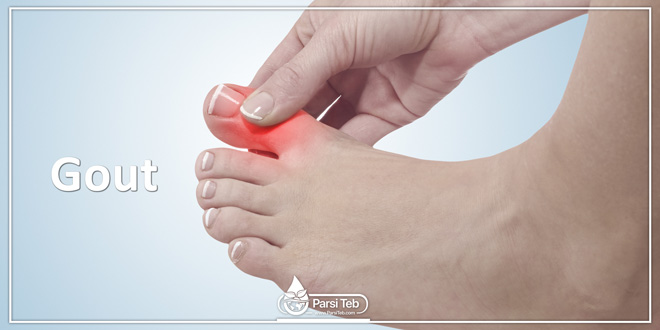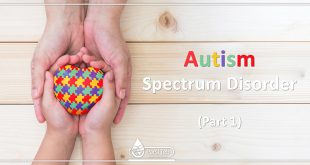What is gout? What are gout symptoms, which foods cause gout, and what are the best gout remedies to obtain quick relief?
Gout is a metabolic disease where the uric acid level builds up in joints as crystals that cause its most common symptom, extreme pain. The increase in uric acid may be due to the body’s inability to correctly process a type of protein (purine) or it may be due to the kidneys’ inability to remove excess uric acid. Either way, gout treatments may include medication to lower the uric acid level or a special gout diet to decrease the amount of purine ingested.
Gout affects about 275 out of every 100,000 people, according to the National Institute of Arthritis and Musculo- skeletal Disease. More men develop gout than women.
The first episode of gout usually occurs between the ages of 40 and 50 in men and after menopause in women. Gout is a form of rheumatic disease caused by uric acid deposits in the joints. It can affect any joint — the fingers, wrist, elbow, knee, ankle, or foot. The most commonly affected joint is the big toe.
Uric acid is a waste product in your blood that is removed by the kidneys and eliminated in urine. The body’s overproduction of uric acid or the kidney’s inability to eliminate it efficiently can cause an excessive build-up, known as hyperuricemia. Over time this excess uric acid can deposit in the joints where it forms into sharp, uric acid crystals that lead to pain and swelling in the affected joint. A gout attack occurs suddenly and may come and go in intensity over a period of several days.
Visit our Gout Forum – Click hereAttacks of gout often occur after indulging in alcohol, particularly wine or beer, or after overeating rich foods such as liver, anchovies, and gravy. Because of this, gout was long thought to be a condition suffered mainly by the wealthy.
It is now thought that while some of these foods and beverages may contribute to gout, it can also occur in their absence. Researchers have found that many people with gout have a genetic predisposition to this illness that is unconnected to their diet. Their body simply either produces too much uric acid or does not eliminate it properly. Because dietary changes can improve gout but not fully eliminate it in such cases, medication aimed at decreasing the amount of uric acid in the body is the first line of treatment.
What Are the Signs of Gout I Should Look For?
Gout symptoms include sudden, severe pain and tenderness, redness, warmth and swelling, in the affected joints — most commonly the big toe. The initial gout attack often occurs at night and is confused by many sufferers with a broken or dislocated toe. Even the weight of bed sheets on the swollen joint can cause excruciating pain. Repeated attacks may be preceded by a tingling sensation in the previously affected joint.
How Do I Know I Have Gout?
Gout is sometimes difficult to diagnose and can be confused with other illnesses, like a sprain or an infection. It is most commonly diagnosed with a physical examination, medical history, and possibly a test to measure the amount of uric acid in the blood. Your doctor may extract fluid from the affected joint, called synovial fluid, with a needle and examine it for crystals under a microscope.
What Treatments are Available for Gout?
Conventional Gout Treatments
There is no permanent cure for gout, but much can be done to manage the pain of an acute attack, lessen the duration of an attack, and prevent future attacks.
Pain and other symptoms of an acute gout attack can be managed with high doses of nonsteroidal anti-inflammatory drugs (NSAIDs). Corticosteroid drugs may be injected directly into the affected joint. Patients usually notice an improvement within a few hours and completely recover within a few days. Treatment is most effective if it begins as soon as possible when an attack occurs.
If NSAIDS do not control symptoms, the doctor may prescribe colchicine. It can be given by intravenous injection or by mouth. When taken by mouth diarrhea is a common side effect. Colchicine is most effective when given within 12 hours after an acute gout attack begins.
Lower doses of NSAIDs and colchicine, along with lifestyle changes, may be prescribed to prevent further gout attacks. If attacks continue to occur even with these medications and lifestyle changes, a drug to reduce the body’s production of uric acid, most commonly allopurinol or probenecid, may be prescribed.
Alternative or Complementary Gout Remedies
Alternative and complementary gout treatments focus on helping your body prevent and eliminate the build up of uric acid. These include:
* Doing everything you can to support the healthy function of your blood cleaners — the liver and kidneys. The better they are working, the better they can clean your blood of uric acid and toxins.
* Drinking lots of fluids, especially water. Try to drink six pints or 96 ounces a day. Dehydration reduces kidney function and can lead to uric acid build-up. Slightly alkaline natural spring water may help reduce the acidity in your body.
* Reducing the amount of meat in your diet because meat is rich in uric acid forming components. Consider a vegetarian lifestyle.
* Eating plenty of raw fruit, vegetables, grains, seeds, and nuts.celery seeds and Cherries and strawberries appear to be most beneficial.
* Avoiding purine rich foods like anchovies, asparagus, crab, fish roe (caviar), herring, kidney, liver, meat gravies and broths, mushrooms, mussels, peas, beans, and sardines.
* Avoiding alcohol. Avoiding rapid weight loss while seeking an appropriate weight/height ratio. Excess body weight and crash dieting both can result in increased uric acid levels in the blood. Reduce any extra weight slowly and healthfully.
* Exercising regularly.
* Drinking black cherry juice. Black cherry juice, available at health food stores, may prevent attacks and shorten acute attacks according to claims from others with gout. Black cherry extract is also available in tablet form. This is not the same as cherry drinks containing low percentages of cherry juice or artificial cherry flavor.
Experimental Gout Therapies
Science is trying to develop safer, more effective treatments for gout. For example, research is attempting to understand how enzymes break down purines within the body to better understand the role of these enzymes and gout. Research into the use of fish oil supplements to prevent gout is also being conducted.
Complications of Gout
About 20 percent of those with gout also suffer from kidney stones. Small stones may cause no symptoms but larger stones can interfere with kidney function. Symptoms of kidney stones include intense intermittent pain in the side and abdomen, nausea, vomiting, a distended abdomen, chills, fever, and blood in the urine. Smaller stones require no treatment and drinking plenty of water may help flush them out of the kidney in the urine. Larger stones must be broken up by ultrasound waves or be surgically removed. Drinking 64 ounces of water a day or more can reduce the risk of kidney stone formation in patients with gout.
Possible Emergencies with gout and How to Handle Them
If you suspect a gout attack is occurring, schedule an appointment with a doctor as soon as possible. It is easiest to diagnose gout if the doctor can see the attack in progress. Treatment is also most effective when started within 12 hours, if at all possible.
In the meantime, focus on managing pain and helping the body eliminate excess uric acid. For pain and swelling take an over-the-counter NSAID medication, such as ibuprofen (if you are not allergic to this medication). Aspirin and acetaminophen may help with pain but do not reduce swelling, so ibuprofen is preferred.
Drinking large amounts of water may help the body to flush out excess uric acid. Some patients claim cold packs make a gout attack more painful so use heat packs instead. Keep pressure off the affected joint, for example don’t constrict the area with tight clothing or try to wrap it. Minimize use of the joint and try to rest.
Expectation of Recovery from Gout
With proper treatment a gout attack will begin to subside within a few hours and go away within a few days. Untreated attacks may last days or weeks.
With preventative treatment you may be able to prevent further attacks or lessen their severity. Without preventative treatment future attacks will likely occur, usually months or years apart. Because gout seems to ‘go away,’ many people stop preventative care only to have their gout return. It’s important to stay on your treatment regime and check in with your doctor before altering or discontinuing medications or your avoidance of trigger foods and beverages.
Gout is a progressive illness, with attacks becoming more frequent and damaging over time. Early and consistent treatment along with avoiding things that can trigger a gout attack can significantly reduce the progression and severity of the illness as you age.
In those with untreated gout, hard deposits of crystalline uric acid, called tophi, may appear as a lump just under the skin, particularly around the joints and at the rim of the ear. Keeping gout and uric acid levels under control can prevent these lumps. Small tophi will likely shrink in size or disappear when uric acid levels are reduced in the blood. Extremely large deposits may need to be surgically removed.
Gout Prevention
Genetics plays a role in gout, but even those with a family history of the disease can take some actions to prevent the development of this illness. Prevention efforts include maintaining an appropriate weight to height ratio, eating a well-balanced, low-fat diet, avoiding excessive alcohol intake, and drinking 64 or more ounces of water per day. For those at risk of developing the disease, tests are available to measure uric acid levels in the blood. While these may be helpful in determining if the body overproduces uric acid, they do not necessarily predict with 100% accuracy that gout will eventually develop.
Questions about Gout to Ask the Doctor
* What can I do to minimize the pain?
* What medications do you recommend?
* Are there any side effects from these medications I should be aware of?
* How often do I take these medications?
* How long will I need to take them?
* Are these medicines ok to take with the other medication(s) I already take? (Bring a list.)
* Besides medication, is there anything I can do to reduce the pain?
* How can I prevent future gout attacks?
* Should I change my diet?
* What follow-up care do you recommend?
* When should I come back?
 Parsi Teb Physical and Mental Health Journal
Parsi Teb Physical and Mental Health Journal 



